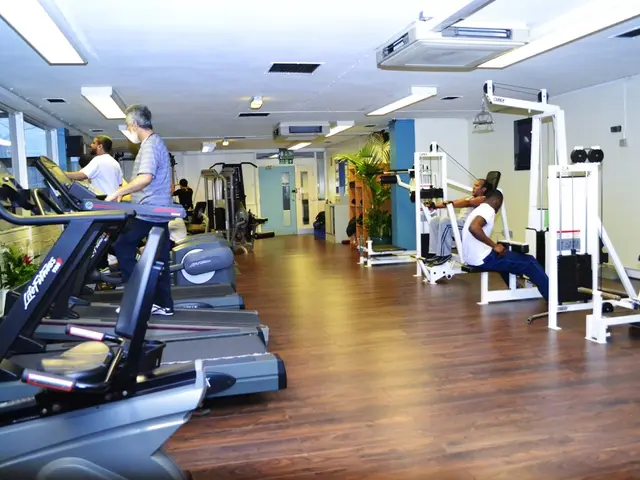Rapid, severe rosacea: Understanding causes, indicators, and remedies
Skin's Worst Enemy: Rosacea Fulminans
Rosacea Fulminans, often confused with its milder cousin, rosacea, is a rare and severe inflammatory skin condition. These sudden, dramatic breakouts typically target the central areas of the face, just like pyoderma faciale does, with the chin, cheeks, and nose, being the most common victims.
The condition's dramatic appearances are marked by flushed, swollen, and painful nodules and pimples, often merging into a single, sizeable mass. While the symptoms may seem similar to rosacea or acne, they're far more severe and come on rapidly.
Rosacea Fulminans has a preference for females of childbearing age, though the exact reason is a mystery. A 2020 review suggests a possible connection with inflammatory bowel disease and pregnancy, while prior rosacea cases may increase susceptibility to Rosacea Fulminans.
Stress, hormonal fluctuations, and certain medications are known potential triggers. Furthermore, a 2021 literature review indicates that specific dietary factors could exacerbate or even trigger rosacea symptoms, although this information may not be exclusively applicable to Rosacea Fulminans.
The potential dietary triggers include:
- Spicy foods leading to flushing and redness
- Hot drinks and alcohol, which might cause vasodilation
- Foods containing cinnamaldehyde, such as chocolate, tomatoes, citrus fruits
- Histamine-rich foods and beverages, like wine, aged cheese, processed meats
It's important to note that dietary triggers can vary significantly from person to person. That's why healthcare professionals aren't likely to suggest specific dietary recommendations for all rosacea patients.
Rosacea Fulminans symptoms primarily affect the forehead, nose, cheeks, and chin. They may include sudden onset of severe, localized skin color changes, like redness, swelling and inflammation, flushing, stinging, and burning. Some people might experience ocular symptoms such as dry, burning, itching eyes and light sensitivity. Systemic symptoms, like fever and fatigue, are rare.
Treatment options may involve oral isotretinoin, a prescription-only acne medication, and oral or topical corticosteroids. In a 2016 case study, antibiotics combined with corticosteroids and lifestyle changes helped alleviate a patient's symptoms. Since certain factors may trigger or worsen rosacea, healthcare professionals may advise identifying and avoiding these triggers. This might involve stress reduction through mindfulness meditation, deep breathing exercises, regular exercise, and journaling, and making dietary changes, such as reducing alcohol.
Prompt consultation with a dermatologist or healthcare professional is essential if a person notices large, tender nodules, abscesses, significant facial discomfort, sudden onset of symptoms, symptoms that persist or worsen despite treatment, eye irritation, or systemic symptoms. Fast action can help reduce complications like scarring and infections. Timely intervention may also help address any emotional distress, potentially improving a person's overall quality of life.
[1] https://www.ncbi.nlm.nih.gov/pmc/articles/PMC7265289/[2] https://www.ncbi.nlm.nih.gov/pubmed/22207846[3] https://www.ncbi.nlm.nih.gov/pmc/articles/PMC2844444/
- Rosacea Fulminans, a severe inflammatory skin condition, is often confused with its milder cousin, rosacea, and primarily affects the central areas of the face, such as the forehead, nose, cheeks, and chin.
- Although the exact reason is unknown, Rosacea Fulminans has a preference for females of childbearing age and may be connected with inflammatory bowel disease and pregnancy, or previous rosacea cases.
- Possible dietary triggers for rosacea symptoms include spicy foods, hot drinks and alcohol, foods containing cinnamaldehyde, histamine-rich foods and beverages, but it's important to note that dietary triggers can vary significantly from person to person.
- The treatment for Rosacea Fulminans may involve oral isotretinoin, corticosteroids, and antibiotics, and healthcare professionals may advise identifying and avoiding triggers through stress management, mindfulness meditation, deep breathing exercises, regular exercise, and dietary changes.








